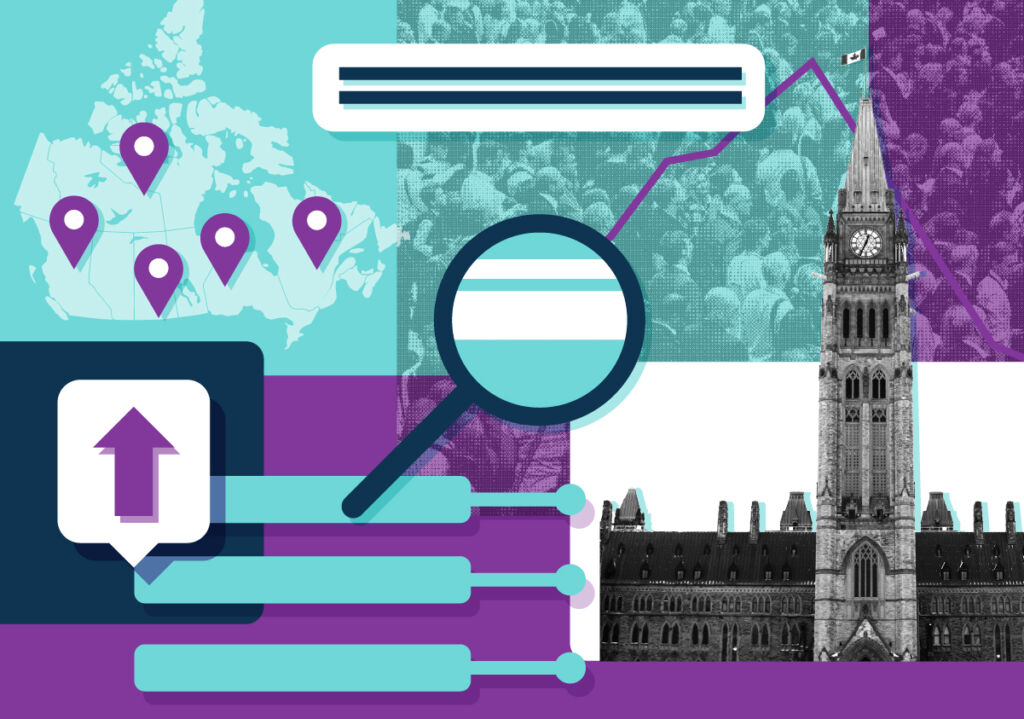As Canada’s 44th Parliament prepares to kick off, it’s clear that policymakers will be tasked with addressing pressing challenges on multiple fronts — from the ongoing pandemic, to the climate emergency, to deepening income inequality.
Under a minority government, consensus building across the aisles of the House of Commons will be essential to ensuring the pandemic’s legacy is one of a publicly led recovery that leaves no one behind.
In the quest to build consensus, one research-backed roadmap to start from is our Alternative Federal Budget (AFB), which is published annually in collaboration with 100 of the country’s most prominent public policy experts, economists and organizations — representing a broad swath of Canadian civil society.
Canadians want, and deserve, a modern recovery plan that includes everyone. The AFB is an example of a plan that would do just that. Its detailed and costed policy solutions chart a “mission critical” path forward—backed by a strong fiscal plan to pay for it—and identify key policy areas that require urgent attention by parliamentarians.
AFB in brief:
We offer detailed and costed solutions to the country’s most pressing challenges, including:
Strengthening income security: COVID-19 exposed the inadequacy of Canada’s income support systems. We’d create two new pillars of income support: the Canada Livable Income benefit for Canadians aged 18 to 62 who do not have children and a new Canada Disability Benefit. We’d lower the eligibility age for seniors benefits. And we’d implement a permanent $500-a-week floor on Employment Insurance.
Investing in a vibrant care economy: COVID-19 exposed how central Canada’s care economy is to public health and well-being. We would take the profit motive out of $10-a-day child care and long-term care. We’d also create national standards for long-term care, to ensure all seniors live in dignity. We’d ensure that care workers are adequately compensated, to reflect their full value to society. We’d also invest in a national program for pharmacare, mental health, and dental care.
Ensuring health equity and well-being for all: COVID-19 has exposed the health inequities that are embedded in Canada’s systems. We propose a more preventative approach to health care; one that is informed by the social and ecological determinants of health, because research shows that basic things like income, decent work, adequate housing, access to nutritious food, safe communities, and a healthy environment can determine a person’s path to health or to illness. While we propose increasing federal contributions to the Canada Health Transfer to 35 per cent over three years, as requested by the provinces, we also stress the importance of investing in public health initiatives and in creating a national inquiry into Canada’s handling of COVID-19 so that lessons are learned for the next crisis. And we’d invest in hiring 1,000 social prescribing navigators to link people to a range of local, non-clinical supports to improve health and well-being.
Building inclusion and well-being: Canada has long been a self-proclaimed champion of human rights and economic opportunity abroad. We want to ensure that Canada lives up to its words at home by creating a national anti-racism strategy, removing barriers to newcomers achieving immigration status and reuniting with their families. And we propose a full review of racism within the RCMP.
Move forward on reconciliation and making investments in First Nations’ well-being: The negative impacts of colonialism on Indigenous Peoples’ well-being requires immediate action. We propose making a major investment in green infrastructure in Indigenous communities, investing in Indigenous food sovereignty, ensuring First Nations communities have clean water and access to reliable broadband infrastructure.
Support job creation and decent work: As Canada’s economy recovers from the pandemic shock, it’s important that every job is a good job. We would establish an independent low-wage commission tasked with researching minimum wage policy in Canada and its impacts. We would ensure diversity and community benefits through federal procurement. We would create a permanent Task Force for Women and the Economy, a new Workers Development and Opportunities Fund for training and apprenticeships, and a youth job guarantee program.
Invest in infrastructure for people, biodiversity and the planet: Saving our planet from destruction is mission critical. We propose placing an immediate moratorium on new fossil fuel extraction projects and phasing out coal, oil and natural gas production for fuel by 2040. We would create a new Just Transition benefit to support workers transitioning into a new green economy, as well as a permanent Just Transition Commission. And we would focus on creating more livable communities, including by expanding creation of affordable and sustainable non-market housing.
Ensure Canada lives up to its rhetoric on the international stage: We would do so by fully endorsing plans at the World Trade Organization to waive patents and other intellectual property rights on COVID vaccines and treatments. We would also increase Canada’s international assistance in line with the country’s fair share, as well as allocating $7.7 billion over three years to the global COVID-19 recovery. And we would fully comply with the UN Declaration on the Rights of Indigenous Peoples.
There is no time to delay getting started on this important work.
And how can we pay for this ambitious, transformative agenda? The Alternative Federal Budget shows that it’s possible by focusing on improving fiscal capacity and tax system fairness, for example by implementing an annual wealth tax, which would generate close to $20 billion annually, as well as a pandemic super profits tax and a minimum tax on multinationals.
All of these policy improvements, representing $90 billion in investments by 2024-25 in critically needed public services and programs, are possible while maintaining the debt service-to-GDP ratio at or near historic lows. All that’s needed is the willpower to get there.
Erika Shaker is the National Office Director for the Canadian Centre for Policy Alternatives. David Macdonald is CCPA Senior Economist. The full Alternative Federal Budget, Mission Critical: A just and equitable recovery can be found at www.policyalternatives.ca/missioncritical.
A different version of this post originally ran in The Hill Times.









